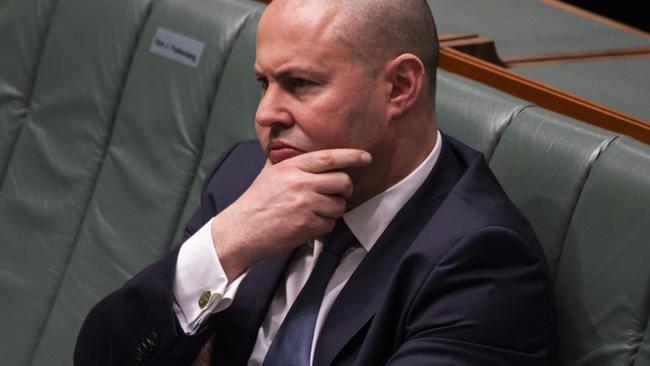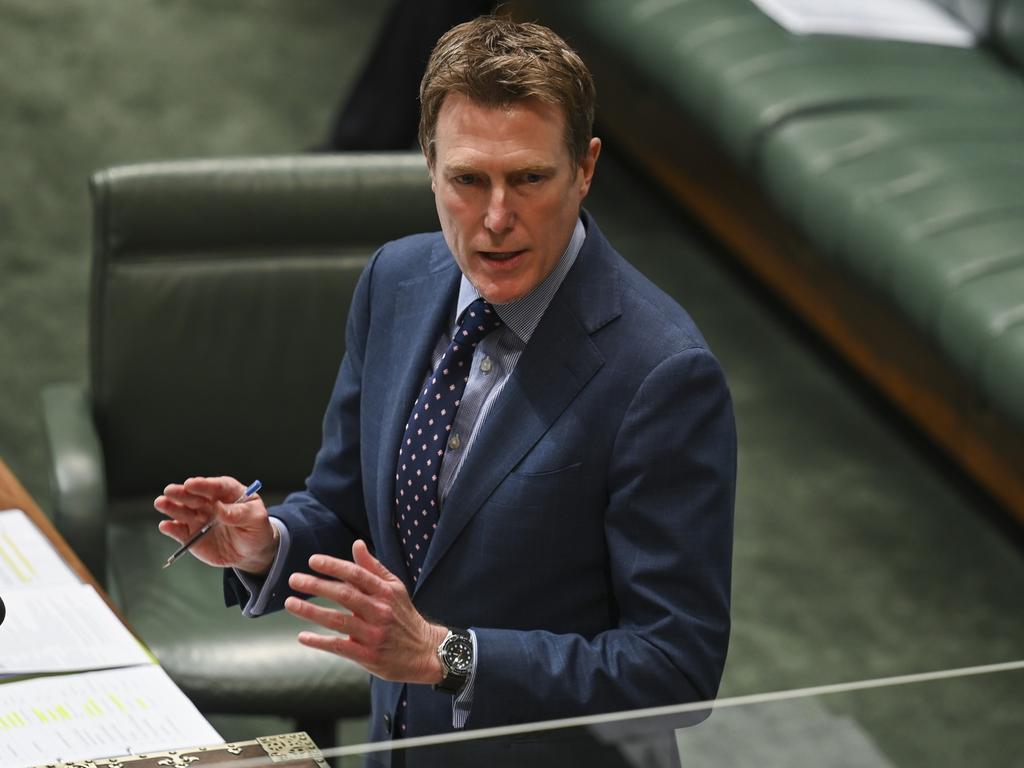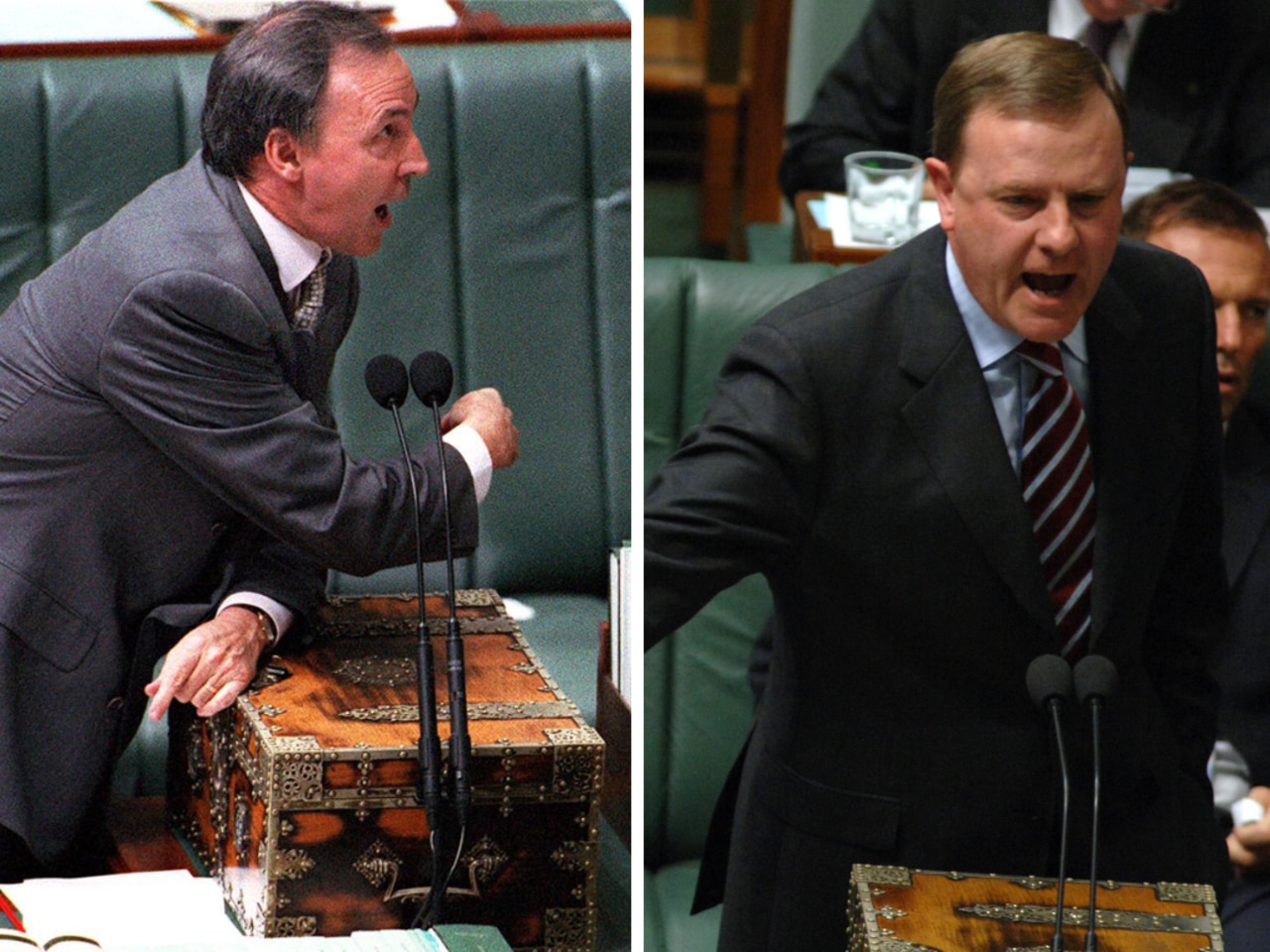Don’t hold your breath waiting for tax reform
Not fit for purpose: it’s not be the most encouraging way to describe our tax system but it’s certainly the most accurate.

Former Treasury secretary Ken Henry has belled the cat when it comes to the deficiencies of the taxation system, doing so at an event at the Australian National University.
The after-effects of the pandemic have heightened the need to recalibrate how Australia taxes. We have vastly more debt, greater expectations on government and dwindling sources of taxation revenue beyond relying on productivity-sapping bracket creep. Even then, legislated staged income tax cuts will erode that windfall.
Neither major party is prepared to embrace GST reform; it was thrown in the too-hard basket long ago. Rent taxes, which Henry advocated in his tax review for the Rudd government more than a decade ago, aren’t palatable either.
And with national cabinet revealing deep divisions between the federal government and the states, don’t expect federation reform – which would include realigning taxation arrangements between tiers of government – anytime soon.
We’ll continue to hear protests from political leaders that they are serious about reform, highlighting everything from tax transfer adjustments to new business concessions and auditing provisions. So what? These are minuscule adjustments that low-level bureaucrats recommend in internal papers that politicians seize on to show they are doing something, or reforms that special interests spruik for marginal benefits.
The whole system needs a revamp; a system no longer fit for purpose requires profound changes, not tinkering. As debt continues to balloon, the structure of our system does not allow us to tax high enough to cover what government must spend.
As Henry put it, our tax system is “not capable of raising sufficient revenue to fund the activities of government”.
Perhaps we first need a philosophical debate: what is the purpose of government, and are community expectations realistic? Do we need to restructure the tax system in line with higher expectations, which means higher taxes, or are expectations too high, thereby requiring re-education about what the role of government in a liberal democracy should be?
Either way, change must soon follow, otherwise our system will splutter along, making the eventual need for reform that much harder when it finally happens.
Imagine how much more difficult the micro-economic reforms the Hawke government initiated would have been had they not happened for another decade. Australia truly could have become the banana republic Paul Keating warned us about, incapable of rising to the middle-power status and prosperity we now enjoy.
This moment is similarly crucial, yet the capacity for our politicians to think outside the square when it comes to reform is limited. The media is more shallow than it once was, more reactionary in how it reports the mere prospect of change, in turn exacerbating the timidity of the political class. And voters are fatigued, partly because of Covid. We’ve also seen major reforms scuttled because they weren’t legislated as part of wholesale tax reform.
A carbon tax repealed. Henry’s mining tax suggested, butchered by the politicians before being legislated, only to be repealed, too. Howard-era workplace reforms could have improved business competitiveness but were junked because the scare campaign was too much for voters weary after a decade of Coalition government. Even the GST ultimately legislated is a compromise version of what was taken to the 1998 election, and it’s certainly inferior to the model for which John Hewson failed to win voter support in 1993.
So here we are in the back half of 2021 with a tax system incapable of doing what it must to collect sufficient revenue for government to do its job – unfit for purpose. We won’t even consider rearranging taxation structures, such that the tax-free status of the family home gets looked at, death duties (like those in place all over the world) get put on the table or a new form of carbon pricing as we push for a zero-emissions target enters the political lexicon.
Why? Because as Donald Horne once lamented, we are a lucky country run by second-rate politicians. Horne was concerned our run of good luck might come to an end. Well, guess what – that time is upon us unless the political class steps up and does what it must, leading from the front. Don’t hold your breath.
Finally, on another matter, it appears the Christian Porter saga will continue to be in focus when parliament returns next month, with Labor and the crossbench calling for him to resign from parliament altogether if he won’t reveal who donated to a blind trust to pay his legal bills when suing the ABC for defamation. As mentioned in this column last week, it was untenable for Porter to remain a minister with unknown donors contributing unknown sums of money to his legal action. He now has resigned from cabinet.
However, in my view that’s also the case for any backbencher, which means yes, he should be forced out of parliament if he won’t provide details about who the donors are. But it appears the rules do not explicitly require Porter to make such a disclosure, which is extraordinary. Those rules must be changed for the long term. This episode has again highlighted the need for reform on political donations. Unfortunately away from the partisan advantage one side of politics can see when the other side is under pressure, there is little support for such reform within major parties.
But the other revelation this week courtesy of the ongoing Porter saga came in the form of news.com.au political editor Samantha Maiden publishing details from a longer document prepared by Porter’s late accuser that has never seen the light of day. It included that the alleged victim believed she suffered from stigmata.
She burned the only contemporaneous diaries that existed from the time she claims to have been sexually assaulted. The diaries relied on, which were written years later, didn’t even name Porter as the alleged rapist and they were heavily doctored and amended. The 88-page document that has remained hidden is also the only document Porter’s accuser ever signed. Yet for some reason, despite being in possession of it, the ABC chose not to publish any of what Maiden now has. I wonder why. Perhaps because such details cast doubt on something spun to be beyond doubt.
Which is why the settlement Porter reached with the ABC to put a note under the article acknowledging what has been alleged can’t be proven to a criminal or civil proof is so important. Maiden is to be applauded for highlighting what she has, when anyone who has the temerity to buck the trend of simply assuming guilt by accusation is painted as some sort of “rape apologist”.
Peter van Onselen is a professor of politics and public policy at the University of Western Australia and Griffith University.







Not fit for purpose: it may not be the most encouraging way to describe Australia’s taxation system but it’s certainly the most accurate.